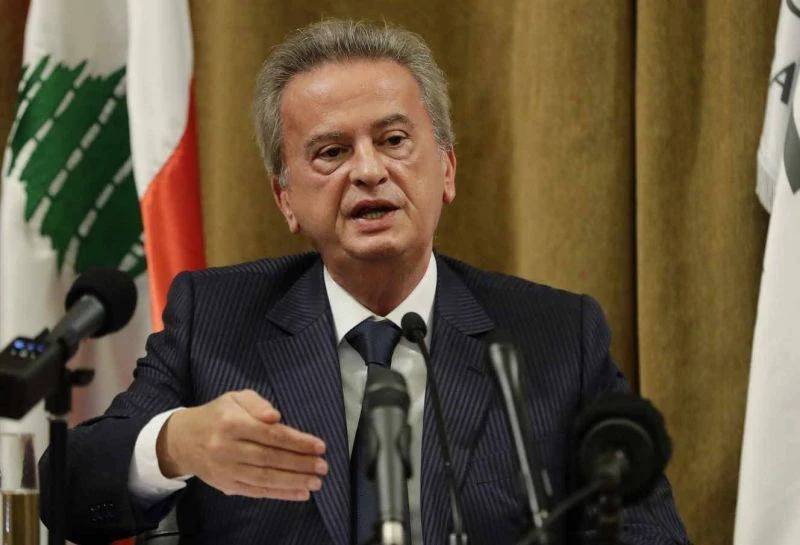
Riad Salameh, governor of the central bank since 1993. (Credit: File photo Joseph Eid/AFP)
Central bank Governor Riad Salameh’s term in office will expire in three months. So far, no successor has been named, but the question begs whether it will be possible to appoint a new governor if Lebanon remains without a head of state come July.
From a constitutional point of view, it should be quite possible to appoint the next Banque du Liban (BDL) chief, even if the presidential vacuum persists. The caretaker cabinet of Najib Mikati is entitled to appoint a governor based on the principle of continuity of public services. But politically, the matter is much more complicated.
Similar to the next president — who, in the absence of a consensus between the various political actors, must at least “reassure” Hezbollah and the Amal movement — the future BDL governor has to win the confidence of Hezbollah and Amal or be part of a balanced package deal distributing the key state positions between the pro- and anti-Hezbollah camps.
It was in this spirit that the so-called French formula was created. It consists of granting the presidency to a candidate close to Amal and Hezbollah — such as these parties' preferred candidate, Marada leader Sleiman Frangieh — and the premiership to the opposing camp.
Although the appointment of a central bank governor is in principle a technical rather than political appointment, it continues to be linked to political issues and must therefore be included in this deal, according to political sources who are closely following efforts to elect a new president.
For the moment, Camille Abousleiman, a lawyer specializing in finance and a former labor minister close to the Lebanese Forces (LF), appears to be the leading candidate for the post and has obtained French and American endorsement.
“By supporting the former minister’s candidacy, France hopes to seduce the LF and push them to accept the deal that is in the making by voting for Sleiman Frangieh. By pleasing the LF, they hope to soften up Saudi Arabia, Samir Geagea’s privileged partner,” said an independent MP who declined to be named.
But nothing seems to be decided at this stage. While the Amal Movement says it does not have a problem with the profile of Abousleiman, who has already met with Parliament Speaker Nabih Berri specifically to discuss the possibility of becoming BDL governor, the issue is more complex when it comes to Hezbollah. The latter refuses for the time being to comment on Banque du Liban’s governance, especially with the presidential election still pending.
The Christian parties are still refusing to endorse Frangieh’s candidacy for the presidency, and Saudi Arabia does not yet seem convinced of the deal.
The same goes for Washington, which has indirectly expressed its refusal to support a non-consensus and non-reformist presidential candidate. Their opinion on BDL’s governance is undeniably relevant, as it is highly likely the US administration would strongly object to a candidate who is hostile to them occupying this key position.
‘Out of the question to renew Salameh’s term’
“The option of Camille Abousleiman has indeed been endorsed by France, but it continues to be closely linked to a comprehensive compromise,” Kassem Kassir, a Hezbollah expert, told L’Orient-Le Jour.
The message is clear: if Frangieh is not elected, the whole deal will be called into question. However, this would not be the only problem for Hezbollah, according to a source close to the party who says the position of BDL governor is far from being exclusively technical.
“Politics is at the heart of this position,” said the source, pointing to the fact that the US's Hezbollah International Financing Prevention Act of 2015, which sanctions any institution that facilitates money laundering transactions for the benefit of Hezbollah, has been a very effective weapon against this party.
Moreover, it is based on this law that US sanctions have since been imposed on top Hezbollah figures and businessmen who are close to it. “At that time, Riad Salameh immediately complied and took the necessary measures to cooperate with this law,” said the source.
So, what can we expect if no successor is agreed upon by the time Salameh leaves office?
Under the Code of Money and Credit, BDL’s first deputy governor, Wassim Mansouri, a Shiite close to Berri, will automatically replace Salameh. Yet, according to a diplomatic source, Berri has recently made clear that he does not want a Shiite person to be appointed to this position in view of the country’s present economic and financial situation — he reportedly neither wants Mansouri to assume responsibility for the crisis nor wants to irritate the Christian community, a member of which typically holds the BDL chief position.
According to the same source, there are unconfirmed rumors about Mansouri’s possible resignation, allegedly suggested by his political boss, the Amal leader, in the hope of a possible rehabilitation of the current governor in his position.
“This scenario is not possible at all. It is out of the question to renew Riad Salameh’s term,” a source close to Hezbollah told L’Orient-Le Jour.
Hezbollah will indeed find it very difficult to justify, especially to its popular base, any extension of Salameh’s term, as the central bank chief has been blacklisted by the party and is under both local and international judicial investigations for financial wrongdoing.
“From an ethical and moral point of view alone, it would be unbelievable to mention the name of Salameh, who should have been dismissed [from his position] a long time ago,” said a financial lawyer who requested anonymity.
This article was originally published in French in L'Orient-Le Jour. Translation by Joelle El Khoury.